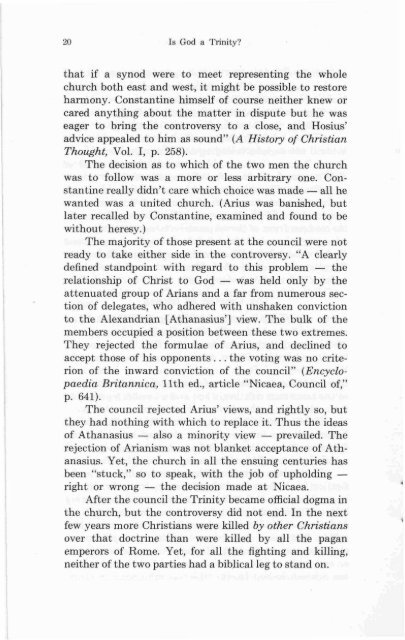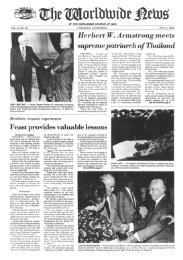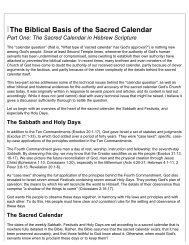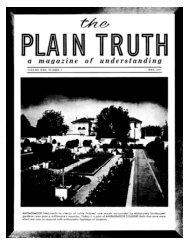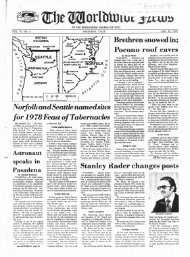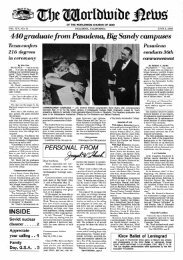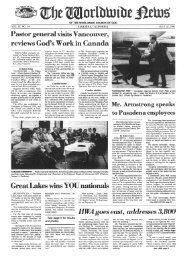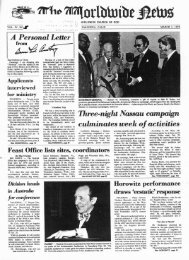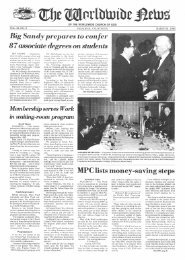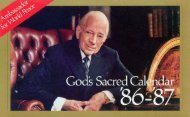Is God a Trinity - Herbert W. Armstrong Library and Archives
Is God a Trinity - Herbert W. Armstrong Library and Archives
Is God a Trinity - Herbert W. Armstrong Library and Archives
You also want an ePaper? Increase the reach of your titles
YUMPU automatically turns print PDFs into web optimized ePapers that Google loves.
20 <strong>Is</strong> <strong>God</strong> a <strong>Trinity</strong>?<br />
that if a synod were to meet representing the whole<br />
church both east <strong>and</strong> west, it might be possible to restore<br />
harmony. Constantine himself of course neither knew or<br />
cared anything about the matter in dispute but he was<br />
eager to bring the controversy to a close, <strong>and</strong> Hosius’<br />
advice appealed to him as sound” (A History of Christian<br />
Thought, Vol. I, p. 258).<br />
The decision as to which of the two men the church<br />
was to follow was a more or less arbitrary one. Constantine<br />
really didn’t care which choice was made - all he<br />
wanted was a united church. (Anus was banished, but<br />
later recalled by Constantine, examined <strong>and</strong> found to be<br />
without heresy.)<br />
The majority of those present at the council were not<br />
ready to take either side in the controversy. “A clearly<br />
defined st<strong>and</strong>point with regard to this problem - the<br />
relationship of Christ to <strong>God</strong> - was held only by the<br />
attenuated group of Arians <strong>and</strong> a far from numerous section<br />
of delegates, who adhered with unshaken conviction<br />
to the Alex<strong>and</strong>rian [Athanasius’] view. The bulk of the<br />
members occupied a position between these two extremes.<br />
They rejected the formulae of Arius, <strong>and</strong> declined to<br />
accept those of his opponents.. . the voting was no criterion<br />
of the inward conviction of the council” (Encyclopaedia<br />
Britannica, 11th ed., article “Nicaea, Council of,)’<br />
p. 641).<br />
The council rejected Arius’ views, <strong>and</strong> rightly so, but<br />
they had nothing with which to replace it. Thus the ideas<br />
of Athanasius - also a minority view - prevailed. The<br />
rejection of Arianism was not blanket acceptance of Athanasius.<br />
Yet, the church in all the ensuing centuries has<br />
been “stuck,” so to speak, with the job of upholding -<br />
right or wrong - the decision made at Nicaea.<br />
After the council the <strong>Trinity</strong> became official dogma in<br />
the church, but the controversy did not end. In the next<br />
few years more Christians were killed by other Christians<br />
over that doctrine than were killed by all the pagan<br />
emperors of Rome. Yet, for all the fighting <strong>and</strong> killing,<br />
neither of the two parties had a biblical leg to st<strong>and</strong> on.<br />
4


